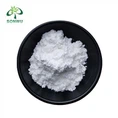Is Withania Somnifera The Same As Ashwagandha
Withania somnifera extract powder is also known as ashwagandha powder. It is recognized to have significant antioxidant capabilities and immune-boosting properties. In addition, American researchers recently discovered that it has excellent sedative effects. A lot of adult Americans have trouble sleeping at night because they are under a lot of mental stress. Modern natural sleep aids (sleep aids) use ashwagandha extract as the primary ingredient along with daisy, valerian root, and other sedative properties of medicinal plants. Combine ashwagandha extract with other plants that have aphrodisiac properties (such maca, turner grass, guarana, kava root, and Chinese epimedium, etc.) to develop a medicine to cure erectile dysfunction in men. There are reportedly at least a dozen "natural Viagra" products available, the great majority of which have ashwagandha extract in them.

How Does Ashwagandha Actually Work
The mechanism of action of ashwagandha, also known as Withania somnifera, involves a complex interplay of various biochemical and physiological processes. Although the precise processes are still being investigated, research points to a number of possible ways that it may work:
1. Adaptogenic Activity: It is classified as an adaptogen, which means it helps the body adapt to physical and psychological stressors. It is believed to modulate the hypothalamic-pituitary-adrenal (HPA) axis and the sympathetic-adrenal-medullary (SAM) system, which are involved in the body's stress response. By regulating these systems, it may help reduce stress and promote homeostasis.
2. Regulation of Cortisol Levels: The adrenal glands release the hormone cortisol in reaction to stress. Chronic elevation of cortisol levels can negatively affect health, including increased inflammation and impaired immune function. It has been demonstrated that it controls cortisol levels, which may lessen the harmful effects of long-term stress.
3. Antioxidant Activity: It contains bioactive compounds such as withanolides, flavonoids, and other polyphenols that possess antioxidant properties. By scavenging dangerous free radicals from the body, these substances lessen inflammation and oxidative stress. This antioxidant activity may contribute to ashwagandha's neuroprotective and anti-aging effects.
4. Neuroprotective Effects: Research suggests that it has neuroprotective effects, which help protect nerve cells from damage and degeneration. It might accomplish this through lowering oxidative stress, adjusting neurotransmitter levels, encouraging the synthesis of nerve growth factor (NGF), and boosting the brain's antioxidant enzyme activity.

5. Immune Modulation: It has been shown to modulate the immune system, potentially enhancing its ability to fight infections and diseases. It may stimulate immune cells such as macrophages, natural killer cells, and T lymphocytes, which play crucial roles in the body's defense against pathogens.
6. Hormonal Regulation: It has been studied for its effects on hormonal balance, mainly thyroid function and reproductive hormones. It may help regulate thyroid hormone levels, improve fertility in both men and women and support overall hormonal health.
7. Anti-inflammatory Effects: Because of its anti-inflammatory qualities, it may be able to lessen inflammation in the body. Chronic inflammation is associated with a number of chronic disorders, so the anti-inflammatory effects of it may contribute to its overall health benefits.
8. Enhancement of Energy Metabolism: Its ability to enhance energy metabolism and mitochondrial function in cells is one of ashwagandha's known rejuvenating and revitalizing properties.
Ashwagandha Side Effects
When taken for brief periods of time and at suitable amounts, it is usually regarded as safe for most people. On the other hand, some people might have adverse consequences, especially if they use it frequently or in large amounts. Before using it, it's important to be aware of any potential negative effects:
1. Gastrointestinal Upset: Some people may experience gastrointestinal issues such as nausea, diarrhea, or abdominal discomfort when taking ashwagandha supplements. These symptoms are typically mild and transient.
2. Allergic Reactions: Rarely, people may develop allergic responses to ashwagandha, which can cause skin rashes, itching, swelling, or breathing difficulties. Should you encounter any allergic reactions, cease using the product and seek medical attention.
3. Sedation and Drowsiness: It has mild sedative effects and may cause drowsiness or lethargy, especially when taken in high doses or combination with other sedating substances.If you take ashwagandha and become overly tired, it's safer not to drive or handle heavy machinery.
4. Hypotension (Low Blood Pressure): It may lower blood pressure in some individuals, which could be problematic for those already taking medications to lower blood pressure. See your doctor before consuming ashwagandha if you have hypotension or are taking antihypertensive medication.

5. Thyroid Hormone Interactions: In some studies, it has been reported to affect thyroid function, potentially altering thyroid hormone levels. People who have thyroid conditions, such as hyperthyroidism or hypothyroidism, should consume it under a doctor's supervision and with caution.
6. Drug Interactions: Certain medications, such as sedatives, antidepressants, antipsychotics, immunosuppressants, thyroid meds, and blood pressure-lowering therapies, may interact with it. Before taking it, discuss any drugs you take with your doctor to prevent any potential interactions.
7. Pregnancy and Breastfeeding: There is limited safety data on using it during pregnancy and breastfeeding. Pregnant and nursing women should use it with caution and should see a healthcare provider before using it, even though it has historically been used to improve fertility and reproductive health.
8. Autoimmune Disorders: It may enhance immune function, which could exacerbate autoimmune conditions such as rheumatoid arthritis, lupus, or multiple sclerosis. Individuals with autoimmune disorders should use it cautiously and under medical supervision.
If you want to know the ashwagandha powder manufacturer, you can contact Xi'an Sonwu. Click the email, and then you get high-quality withania somnifera extract.
Email: sales@sonwu.com





